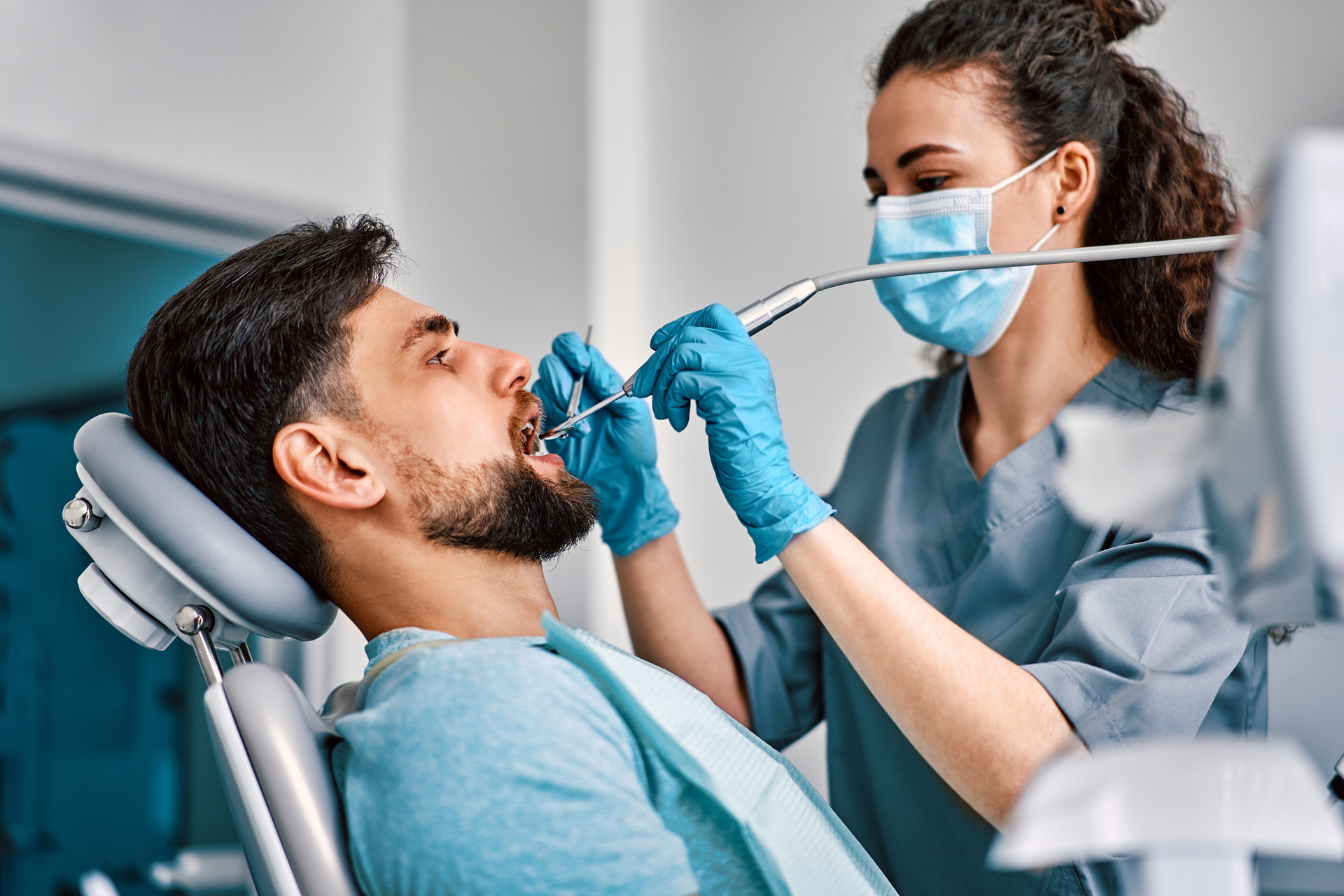Periodontal Maintenance

Individuals who have been diagnosed with periodontal disease need to see a dentist regularly to prevent tooth loss and other complications associated with this condition. Periodontal maintenance treatment is designed to thoroughly clean the gums and teeth to halt the progression of the disease, one that many individuals develop during their lifetime.
Periodontal disease occurs when plaque builds up on the teeth. The bacteria from this plaque develop above or below the gum line, leading to irritation and inflammation as the bacteria produce toxins harmful to the body.
As a result, a chronic inflammatory response is observed in the body, and the body reacts. It begins to systematically destroy tissue in the bone and gums, leading to a shifting of the teeth. The teeth may also become unstable, or they can fall out. Pockets form in the teeth and gums, they get larger over time, and the bacteria may spread to other parts of the body, leading to infections throughout one’s system. This is why regular periodontal maintenance treatments are essential.

What To Expect During Periodontal Maintenance Visits
Dentists often perform periodontal treatments during regular visits.
Typically, the dentist cleans the area above the gum line, making use of special scaling tools to remove any tartar and plaque. This process is referred to as supragingival cleaning and is followed up with subgingival cleaning. Dentists consider this to be an essential part of the process, as it is used to detect any bacteria and tartar beneath the gum line and in gum pockets. Once the cleaning is complete, the tooth root must be smoothed to ensure no bacteria remain. This is of great importance, as these bacteria are hazardous and can bring about severe health problems.
At times, the dentist may use an antimicrobial cream or an antibiotic, placing this medication in the gum pockets to promote healthy healing promptly. The medicine may also be used to minimize any discomfort the patient experiences. After this has been done, the dentist works with the patient to establish a schedule for future maintenance treatments.
In many cases, maintenance requires a trip to the dentist every three to four months. Studies have shown bacteria begin to form in the mouth immediately after a dental cleaning. It only takes three months before harmful bacteria start to form; thus, these visits are of great importance. With regular maintenance visits, patients find the inflammation is better controlled, and there is less risk of further damage to the gums and bone.


The Benefits Of Periodontal Maintenance
With regular cleanings, the oral cavity remains in good health, and gum disease progression is halted. During the cleaning, the dentist removes plaque and tartar that have built up below and above the gum line. This cannot be done at home, as the bacteria, debris, and deposits are contained in pockets. Specialized dental equipment is needed to accomplish this, along with the trained eye of the dentist.
Many patients fail to realize they have periodontal disease until someone they love mentions their recurring bad breath. This problem occurs when food particles begin to rot below the gum line. Also, any infection present in the gums can lead to gangrene and bad breath along with periodontal issues. When the tartar, plaque, and bacteria are removed, the breath smells better, and irritation decreases or is eliminated.
One primary reason to undergo regular periodontal maintenance is the dentist may be able to spot health problems that might otherwise go undetected. For example, oral cancer screenings take place when the teeth are cleaned. In addition, kidney problems and diabetes are sometimes detected during a cleaning. Finally, the dentist takes the time during cleaning to make recommendations on caring for the gums and teeth at home for better oral health.
If you suffer from periodontal disease, you need to speak to a dentist to determine a schedule for maintenance and cleanings. When left untreated, this disease can do great harm to the body. Although the disease cannot be reversed, regular treatments help to ensure the progression of the disease is halted, and there is less destruction of the bone and gums. Also, stopping the progress of the disease helps to prevent further complications.
Call us today at (202) 363-2500 to discuss your dental needs and your concerns about periodontal disease. We’ll be more than happy to develop a treatment plan with you to stop the disease from worsening and protect both your oral and general health.






